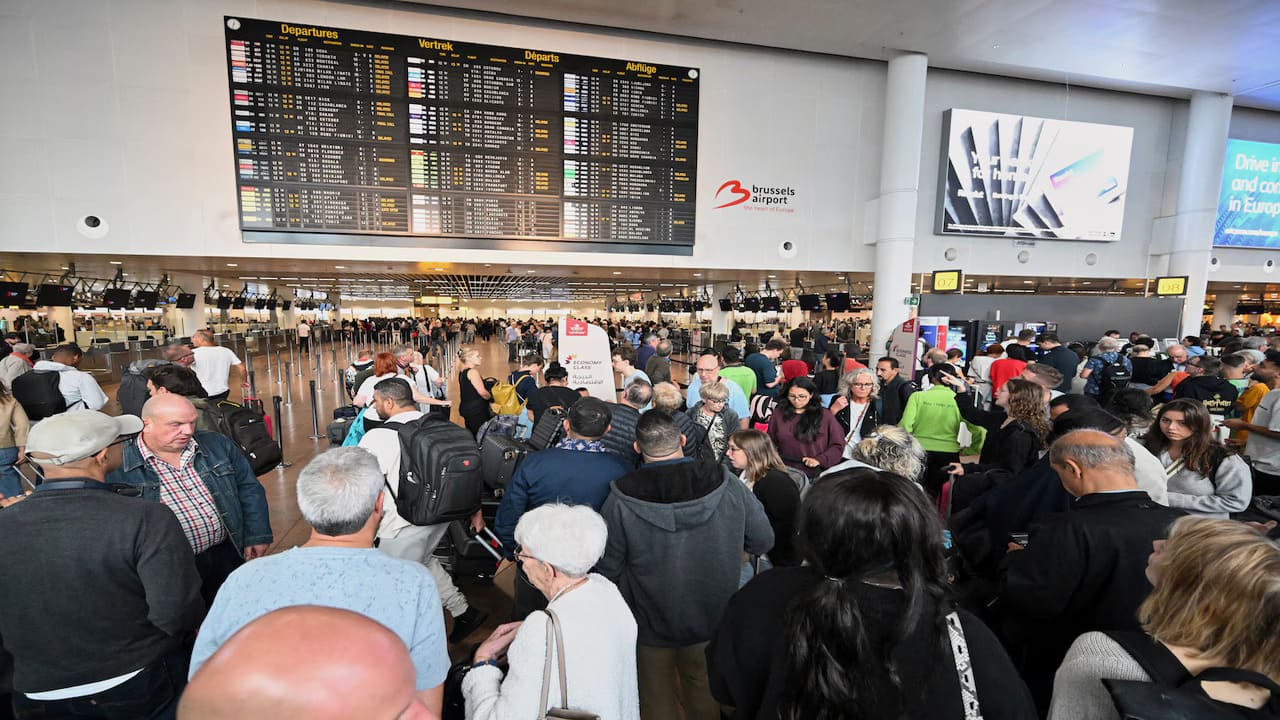
IndependentReport – Late on Friday evening and into the early hours of Saturday, several major European airports, including London’s Heathrow, reported severe technical failures in their passenger processing systems. The problems centered on check-in and boarding services, forcing airlines to revert to manual procedures. This Cyberattack on Heathrow suddenly breakdown caused long queues at counters, delayed flights, and disrupted baggage handling, creating frustration for thousands of passengers.
At Heathrow, one of the world’s busiest hubs, airport officials confirmed that the disruption was not caused by airlines but by a third-party system provider. The outage quickly spread to other major European airports such as Brussels and Berlin Brandenburg, highlighting how interconnected and vulnerable airport operations have become in the digital era. By Saturday afternoon, partial restoration efforts were underway, but the damage to passenger schedules had already been significant.
Investigations soon pointed to Collins Aerospace’s MUSE system, a widely used software that manages essential airport functions like check-in, boarding, and baggage drop. When the system went offline, multiple airlines and airports had no choice but to switch to emergency manual operations.
Brussels Airport reported dozens of cancellations and significant delays, while Berlin Brandenburg confirmed that although they kept flights running, operations slowed dramatically due to reliance on manual alternatives. Heathrow stated that they were working closely with the software provider to restore services, underlining the dependency of modern air travel on centralized digital systems.
Read More : US Supreme Court Review of Trump Tariffs: Key Issues and Possible Outcomes
Almost immediately, suspicions were raised about the source of the cyberattack. Several cybersecurity experts suggested that the scale and sophistication of the operation pointed toward a state-backed actor. In this context, Russia was named as the leading suspect. The allegation is consistent with previous accusations in which Russian cyber units were linked to attacks on critical European infrastructure.
However, despite these suspicions, no definitive public evidence has yet been released to confirm Russia’s involvement. Moscow has also denied any role in the disruption. Security agencies in the UK and across Europe have launched digital forensic investigations, aiming to trace the entry point of the malware and identify the attackers. Until then, responsibility remains unproven, though the geopolitical context has kept Russia under close scrutiny.
The Heathrow disruption has sparked wider discussions about the resilience of European airports and the risks of overreliance on external providers. Analysts and regulators have highlighted several critical lessons:
These points illustrate how one breach can ripple across multiple countries, amplifying the urgency for stronger cybersecurity in aviation.
Also Read : ISIS Is Back? Terrifying Comeback in Syria as U.S. Troops Pack Up!
This incident demonstrates that Cyberattack on Heathrow exposes aviation infrastructure are no longer hypothetical threats but immediate realities with tangible consequences. Airports are classified as critical infrastructure, yet their heavy dependence on digital networks makes them prime targets for disruption.
Moving forward, experts argue that European airports must conduct regular cybersecurity audits. Enforce stricter certification requirements for third-party providers, and invest in more resilient backup systems. Governments may also need to consider coordinated defense strategies, given that cyberattacks often cross national borders and exploit shared vulnerabilities.
For passengers, the Heathrow outage was a major inconvenience. For governments and security agencies, it was a warning shot: without stronger cyber defenses. Future attacks could be even more disruptive, potentially threatening not only schedules but also safety and international confidence in air travel.
This Article About Cyberattack on Heathrow Written by: Sarah Azhari | Editor: Micheal Halim
Information Source: BBC.com